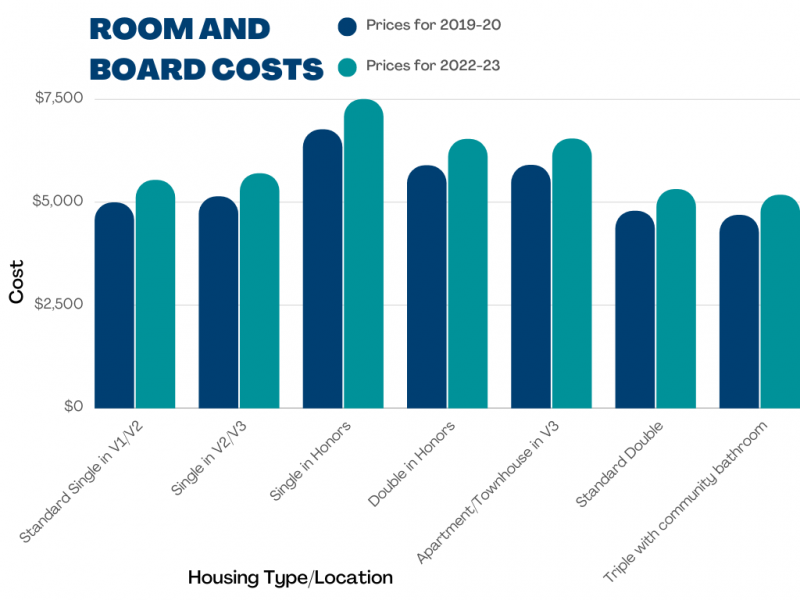Isaac Fick|Marlin Chronicle
The Peace Garden serves as a memorial to the Robert Nusbaum Center’s Director, Dr. Catharine Cookson, who passed away in 2004. Established in 2005, the garden represents the goals of the center, those being inclusivity, diversity and civil dialogue.
Recently, the debate over DEI initiatives has become a primary focus in the United States, as President Donald Trump signed an executive order that requires institutions to “enforce our longstanding civil-rights laws and to combat illegal private-sector DEI preferences, mandates, policies, programs, and activities.”
DEI, which stands for diversity, equity and inclusion, originated in the 1960s anti-discrimination legislative movement. The intention of the initiatives was to remove discriminatory practices and policies within organizations.
Trump has begun dismantling DEI initiatives; according to the U.S. Department of Education, the Department has “removed or archived hundreds of guidance documents, reports, and training materials that include mentions of DEI from its outward-facing communication channels.”
These actions correlate with Trump’s commitment to end illegal discrimination and wasteful spending across the board. The call for DEI initiatives to be carefully reviewed is extending into the private sector with encouragement from the President to end illegal discrimination and preferences within institutions.
“We constantly held this idea of equality, with this refusal to do the work of equity,” an advocate of DEI and CEO of Justice Informed, Xavier Ramey, said to WTTW News. “And this is why they’re saying equity is discriminatory for them. Discrimination is not our enemy. Prejudice is our enemy.”
“[Trump’s] attacks on diversity, equity, and inclusion aren’t about a particular program or some acronym — they’re just a sanitized substitute for the racist comments that can no longer be spoken openly,” President of the Southern Poverty Law Center Margaret Huang said to The New York Times.
According to Inside Higher Education, we will unlikely see an immediate effect on higher education as any change will require agency action. However, Ivy League schools are being put under the microscope.
“Dear Ivy League universities, you are officially on notice. President Trump has declared that any race-based discrimination, including DEI-style discrimination, is now a violation of civil rights law and will put your federal funding in jeopardy,” senior fellow at the conservative Manhattan Institute, Christopher Rufo, tweeted. “Abolish DEI, or get wrecked.”
Although Ivy League schools are not the only ones at risk, they are being examined following a report published by the Equal Protection Program (EPP) that found Ivy League Universities sidestepping the 2023 Supreme Court ruling against affirmative action. At Virginia Wesleyan University, students express concerns beyond budgetary funding.
“I don’t think it should affect here, but in the broader sense, especially with schools that have historically not been diverse groups, it’s going to affect more than we would wish to,” sophomore and Student Government Association President, Miles Pifer, said.
Accessibility to higher education for marginalized groups is a concern among students.
“It would make it harder for Black students to have the courage/motivation to go out there and put the effort in,” junior and President of the Black Student Union, Daryl Tucker, said.
There is also concern about accessibility to education in terms of scholarships and aid. “Those policies are in place to help people who cannot or do not have the opportunities in place to go to college or university, using myself as an example, I had to dig for a lot of the ones that would apply to me as someone who is on an autism spectrum,” Pifer said.
“It could make it harder for Black students to access resources and feel supported, potentially leading to lower enrollment and retention rates,” Tucker said.
Advocates against DEI initiatives believe DEI policies are not advancing the cause of the civil rights movement. “I’ve long argued that affirmative action needed to be race-neutral and that DEI policies created conflict and turmoil in the workplace and on college and university campuses,” political scientist and former Professor of Political Science and Law at Vanderbilt University, Carol Swain, said in an article.
In this same article, Swain discussed how ending DEI initiatives and policies will not end diversity and instead lead to domination by white-privileged males, as pre-existing anti-discrimination laws “will ensure a healthy diversity of bodies, minds, and talents.”
“A decade into Proposition 209’s effect, only 96 of the 4,800 first-year students expected to enroll at UCLA were Black,” James Moskowitz, a Batten lecturer in Political Science, said. “The UC system reported one of its most racially diverse classes this past year.”
Proposition 209 is California’s constitutional amendment that prohibits the use of race, gender and/or ethnicity by state agencies for public employment, education and contracting. According to this, a school like UCLA removing consideration of race during the admissions process does not end diversity in the long term.
By Mia Diehl

